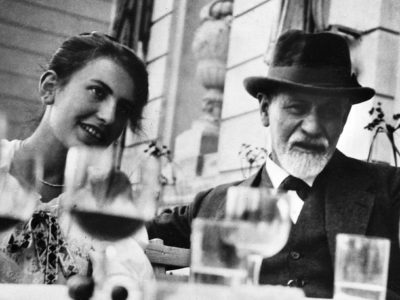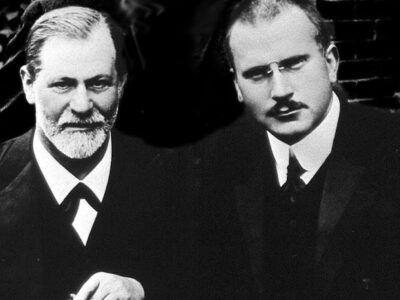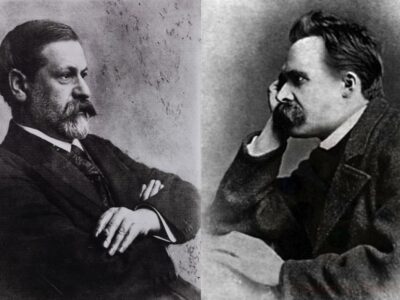
- This event has passed.
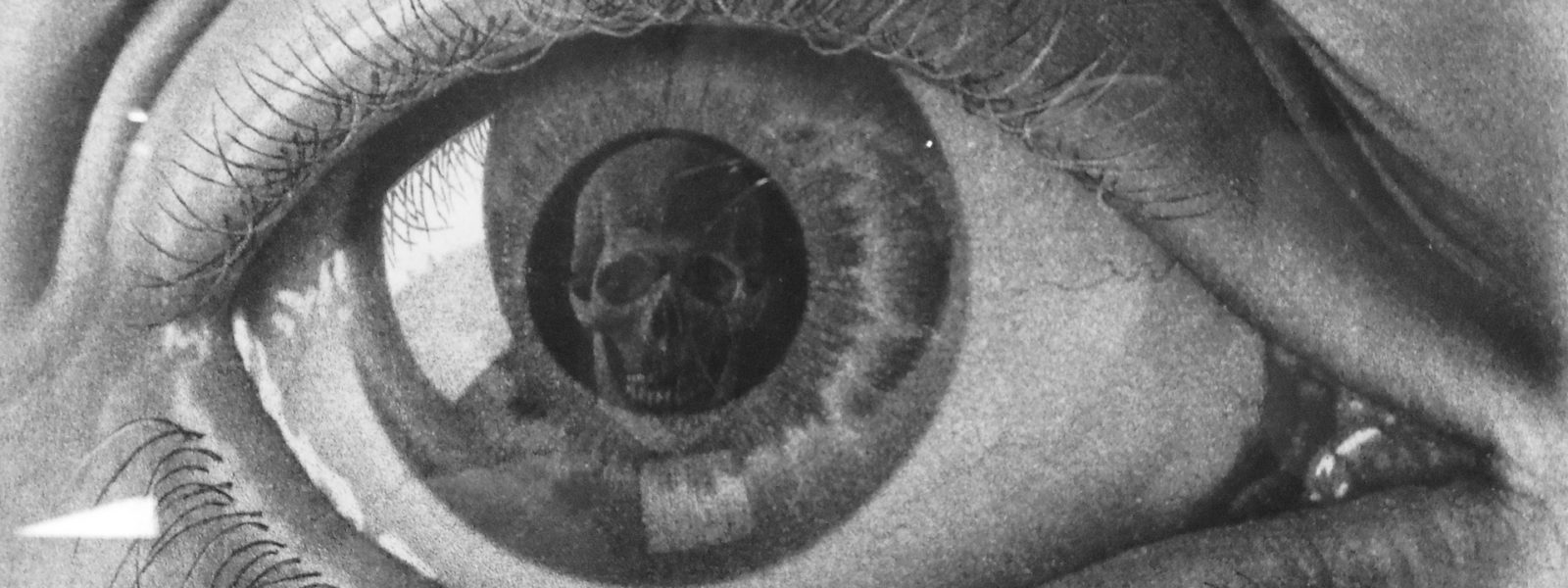
Is there a place for psychosis in psychoanalysis? Is there a place for psychoanalysis in psychosis?
The questions remain open, deserving further examination across history, politics, theory and technique.
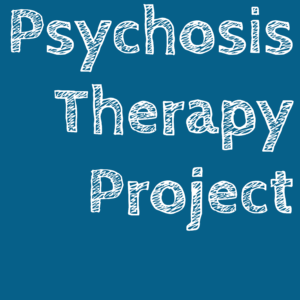
A fundraiser conference for the Psychosis Therapy Project.
Following the highly successful event held in March 2016 as a fundraiser for the Psychosis Therapy Project, this conference offers to have another look at the complex interface between psychosis and psychoanalysis.
An international panel of eminent clinicians and theoreticians in the area of psychosis will share their experience and expertise as they discuss the promises and the pitfalls of the psychoanalytic engagement with psychosis.
Programme
09.00 – 09:30
Registration and Coffee
09:30 – 09:40
Welcome and introduction
Session 1: Politics
Chair: Barry Watt
09:40 – 10:20
David Morgan
The Political Mind: Psychotic Anxieties and the Desire for Authoritarianism in Neo-Liberalism and the Individual Psyche
10:20 – 11:00
Berjanet Jazani
Psychotic Politics: a Fury Road to the Awakening of the Primal Father
11:00 – 11:30
Morning Break
Session 2: Theory
Chair: Dorothée Bonnigal-Katz
11:30 – 12:10
Brett Kahr
“Slashing the Teddy Bear’s Tummy with a Carving Knife”: The Infanticidal Roots of Schizophrenia
12:10 – 12:50
Patricia Gherovici
When is Transgender Psychotic? Towards a Differential Clinic of Transgender Expressions
12:50 – 14:00
Lunch Break
Session 3: Technique
Chair: Haya Oakley
14:00 – 14:40
Philippe Valon
“Malleable Medium”: From Gisela Pankow to Psychoanalytic Psychodrama
14:40 – 15:20
Françoise Davoine
The Lessons Taught by Hospitalized Patients on the Psychoanalysis of Psychosis and Trauma
15:20 – 15:50
Afternoon Break
Session 4: History – Psychoanalysis in the Community
Chair: Paul Zeal
15:50 – 16:10
Anne Zachary
Water, no fire … Looking to Winnicott to Understand Care in the Institution
16:10 – 16:30
Vassilis Kapsambelis
Psychotherapy with Psychotic Functioning Patients
16:30 – 16:50
Dorothée Bonnigal-Katz
Psychosis Therapy Project: A Psychoanalytic Project in the Community
16:50 – 17:30
Plenary Discussion and Closing Thoughts
Abstracts
Dorothée Bonnigal-Katz – Psychosis Therapy Project: A Psychoanalytic Project in the Community
The Psychosis Therapy Project (PTP) is a specialist psychotherapy service for people who experience psychosis. It was founded in 2013 in North London and now operates in the inner city across London in collaboration with Islington MIND in North London and Lambeth & Southwark MIND in South London. The PTP works in the community with people who are socially and economically excluded and receive very little support besides medication. This presentation offers to discuss the benefits and the challenges of running a specialist psychoanalytic project in the community in the current economic and political climate.
Françoise Davoine – The Lessons Taught by Hospitalized Patients on the Psychoanalysis of Psychosis and Trauma
In the seventies, given the pitfalls of psychoanalysis regarding psychosis, I decided, with my late husband, Jean Max Gaudillière, to train as a psychoanalyst in a public psychiatric hospital although we were not psychiatrists or a psychologists. Our degrees were in classical literature and sociology. I must also say that I had previously paid several visits to the English antipsychiatrists in London.The first hosptial was in the North of France, in the middle of the battle fields of the two world wars. The patients there spoke about the importance of traumas in their personal history, linked to the catastrophes of the big History. They taught me: first, that I could not stay neutral, having myself gone through such traumatic events; secondly, that any dynamic progress out of psychosis occurred at critical moments; thirdly, that our work was a process of co-research for which my favorite authors, such as Wittgenstein, Don Quixote and Tristram Shandy, were precious allies, as Freud says, in our common investigation. I will give clinical examples of such a positive teaching.
Patricia Gherovici – When is Transgender Psychotic? Towards a Differential Clinic of Transgender Expressions
Taking the case of President Schreber and the “drive-towards-Woman” as a point of departure, this presentation challenges how trans expressions have been historically interpreted by psychoanalysis. This presentation argues for a depathologization of trans expressions while addressing issues of paternity, creativity, beauty, embodiment and survival.
Berjanet Jazani – Psychotic Politics: a Fury Road to the Awakening of the Primal Father
How has the current political discourse in power created a space for radicalism and terrorism? What can we understand from the dreadful sounds of the times, of increasing intolerance towards differences, when just a few decades ago we believed that we would all soon come together as citizens of the world? The relationship of madness to decision-making in politics does not only affect the life of the individual living under those decisions. It also leaves a broader, historical mark on social discourse in the longer term. The relationship between the discourse of the Other and the formation of the Symbolic unconscious is undeniable. How else can we interpret the lack of guilt raised or felt around certain social and political horrors of the last century? Through the lens of psychoanalysis, we will raise some questions about social phenomena such as fundamentalism, radicalism and terrorism; reflect upon current social issues; and question the approach of modern politicians towards both the formation of these expressions of madness and how they handle them.”
Brett Kahr – “Slashing the Teddy Bear’s Tummy with a Carving Knife”: The Infanticidal Roots of Schizophrenia
In view of the impressive strides in molecular genetics and in brain imagining, members of the psychoanalytical community have become increasingly reluctant to speak publicly about the role of early childhood experiences in the genesis of psychotic states, in spite of the fact that psychotherapeutic treatments often yield impressive results. For more than thirty years, Brett Kahr has explored the role of early parental death wishes as possible contributory factors in the development of severe psychoses. Building upon the work of Sigmund Freud, Sándor Ferenczi, and Donald Winnicott, all of whom wrote about the role of death wishes in the family, the author will consider a typology of infanticidal wishes which manifest as actual death threats or as displaced death threats (e.g., the killing of family pets or attacks on children’s toys). Kahr will then elucidate his concepts of the “infanticidal introject” and of the “infanticidal attachment,” so prevalent in the histories of individuals struggling with schizophrenia.
Vassilis Kapsambelis – Psychotherapy with Psychotic functioning Patients
The Centre for Psychoanalysis of the Mental Health Association in the 13thdistrict of Paris is part of a community psychiatric public facility, specialized in non-neurotic pathologies. This particularity has led the Centre to develop distinct treatment techniques (for example, psychodrama) and to elaborate certain theoretical concepts (transference investment, thirdness and the “third person,” processual interpretation…) that take into account the necessity of adapting the psychoanalytic approach with these categories of patients.
David Howell Morgan– The Political Mind: Psychotic Anxieties and the Desire for Authoritarianism in Neo-Liberalism and the Individual Psyche
When faced with the threat of disintegration or the frightening complexity of life the mind will look for simplistic explanations to shore itself up against anxiety. At a societal level this occurs as a dangerous attraction to fascist states of mind and populism, which provide simplistic alternatives to complex issues like migration and climate change that require adult not infantile thinking.
Philippe Valon – Malleable Medium
The psychoanalytic treatment of psychotic patients is often difficult through a sole reliance on associative speech. These patients might not be apt at pursuing the course of regression that arises from this kind of speech or this regression might lead them to psychic areas where de-symbolisation is so extensive that only delusion or dissociation are available to them. A medium has often been suggested so that the representation of the drive and the formalisation of infantile sexuality may unfold more safely and efficiently.
Two modalities of use of a malleable medium will be considered in this paper: Gisela Pankow’s clay modelling and psychoanalytic psychodrama as it has developed in France, Belgium and Switzerland since the end of the 1950s.
From the 1950s to the 1970s, Gisela Pankow advocated the use of clay models made by patients –including adults – for the analyst, during and between sessions, a technique supported by a properly Freudian yet distinctly inventive metapsychology. It calls on sensoriality, motricity and an imaginary construction to access unconscious fantasies that would otherwise be impossible to unveil. Psychoanalytic psychodrama also relies on sensoriality, motricity and imaginary constructions which are dramatised in order to access the same fantasies. But in this case, the medium is play while it involves adults as well.
This might be what brings together these two modalities of work most saliently, despite their apparent differences: suggesting children’s activities to adults – whether clay modelling or play.
Anne Zachary – Water, no fire … Looking to Winnicott to Understand Care in the Institution
Remembering the richness of NHS mental health resources in bygone times, the Cassel hospital Families’ unit in the 1980s, the intensive care unit at a High Security hospital more recently. Winnicott’s implicit focus on re-mothering as a form of psychoanalytic treatment for psychological breakdown is adapted to the Institution, attending to the power of the unconscious and supporting the nursing work. Trying to make sense of a mad environment, the aim is to survive.
Speakers’ Biographies
Dorothée Bonnigal-Katz is a psychoanalyst and a translator. She is a member of the Site for Contemporary Psychoanalysis, UKCP, CPJA and CP–UK. She is the founder and clinical lead of the Psychosis Therapy Project. Her work as a translator includes a number of psychoanalytic texts such as Dominique Scarfone’s Laplanche: An Introduction (2015) and The Unpast: The Actual Unconscious (2016). Her latest translation, Laurence Kahn’s Psychoanalysis, Apathy and the Postmodern Patient was published in 2018 in the New Library of Psychoanalysis series (Routledge).
Françoise Davoine is a psychoanalyst in private practice; she was a member of the Ecole Freudienne de Paris (the psychoanalytic organisation founded by Jacques Lacan) until its dissolution in 1980. She is Professor Emeritus at the Ecole des Hautes Etudes en Sciences Sociales in Paris where she led, with Jean Max Gaudillière, a weekly seminar on “Madness and the Social Link,” until Jean Max Gaudillière’s death in 2015. She is Erikson scholar at the Austen Riggs Center, Massachusetts, USA and delivers seminars and lectures in Europe, the US, and Latin America.
Patricia Gherovici, Ph.D is a psychoanalyst and analytic supervisor. She is co-founder and director of the Philadelphia Lacan Group and Associate Faculty, Psychoanalytic Studies Minor, University of Pennsylvania and Founding Member of Das Unbehagen, New York. Her books include The Puerto Rican Syndrome (Gradiva Award and the Boyer Prize), Please Select Your Gender: From the Invention of Hysteria to the Democratizing of Transgenderism, and Transgender Psychoanalysis: A Lacanian Perspective on Sexual Difference. She recently completed a new collection (co-edited with Chris Christian) Psychoanalysis in the Barrios: Race, Class, and the Unconscious (forthcoming in 2019.)
Berjanet Jazani is a medical doctor and a practising psychoanalyst in London. She is an analyst member of the Centre for Freudian Analysis & Research, where she teaches and supervises clinicians and candidates in training. She is a regular contributor to the online publication of the Iranian Medical Council in the field of mental health. Forthcoming publications include: “Lacan, forbidden!” in Persian (2018); “A Phoenix Journey: Faces of desire” a collection of introductory essays on Lacanian concepts in English (2019); “A Resident of the World” and “Le Silence de la mer(e)” JCFAR 2018/2019.
Brett Kahr has worked in the mental health profession for over forty years. He is Senior Fellow at the Tavistock Institute of Medical Psychology in London and, also, Senior Clinical Research Fellow in Psychotherapy and Mental Health at the Centre for Child Mental Health, as well as Trustee of the Freud Museum London and of Freud Museum Publications. He is author or editor of eleven books, including the best-selling Sex and the Psyche (Penguin Books) about the traumatic origins of sexual fantasies; and he has served as series editor to over fifty further volumes. His most recent book is entitled Bombs in the Consulting Room: Surviving Psychological Shrapnel (Routledge, 2018), and his forthcoming book on The Traumatic Roots of Schizophrenia (Routledge, 2019) is due to appear shortly.
Vassilis Kapsambelis is a psychiatrist and a psychoanalyst, a full member of the Paris Psychoanalytic Society (SPP). He has been General Director of the “Mental Health Association in the 13th district of Paris” (ASM 13), the organization that introduced community psychiatry and psychotherapy in France. He currently directs the Centre for Psychoanalysis (Kestemberg Centre) of this association.
David Howell Morgan is a consultant psychotherapist and psychoanalyst, a Fellow of the British Psychoanalytic Society. He is a training analyst and supervisor at the BPA and a member of the IPA committee on Humanitarian Organisations. He has worked with psychosis at the Maudsley Hospital supervised by Murray Jackson and at the Portman Clinic with forensic patients. It is said that “Psychotic patients attack their own minds; Forensic patients attack the minds and bodies of others.” He is chair of the Political Minds seminars at the Institute of Psychoanalysis and co-chair of the EPF Political Minds. He is involved in Frontier Psychoanalyst Radio and Resonance FM. He lectures internationally and nationally. His most recent publications include “Inflammatory Projective Identification in Political and Economic Terrorism” in Psychoanalytic Psychotherapy (Spring 2018) and “The Return of the Oppressed” (Warsaw EPF Conference).
Philippe Valon is a psychiatrist and a psychoanalyst, a full training member of the French Psychoanalytic Association (APF). He is a senior practitioner of psychoanalytic psychodrama at ETAP in Paris, the Association for Analytic Study and Treatment via Psychodrama where he also trains health professionals to the practice of psychoanalytic psychodrama.
Anne Zachary is a Fellow of the British Psychoanalytic Society. She works in private practice as a psychoanalyst. She trained in medicine and psychiatry at the Royal Free hospital, specialized in psychotherapy at the Cassel hospital, trained concurrently as a psychoanalyst and worked at the Maudsley hospital, before becoming a consultant at the Portman Clinic. The Portman assesses and treats patients in the community with problems of sexual perversion, violence and delinquency. She also consulted to medium secure units and Broadmoor hospital. Her latest book The Anatomy of the Clitoris: Reflections of the Theory of Female Sexuality was recently published with Routledge (2018).
Bursaries:
A limited number of bursary places are available for those under financial hardship.
Bursary places are charged at £35.
Priority will be given to UK unemployed and PIP/ESA claimants.
Bursary applications are now closed.
